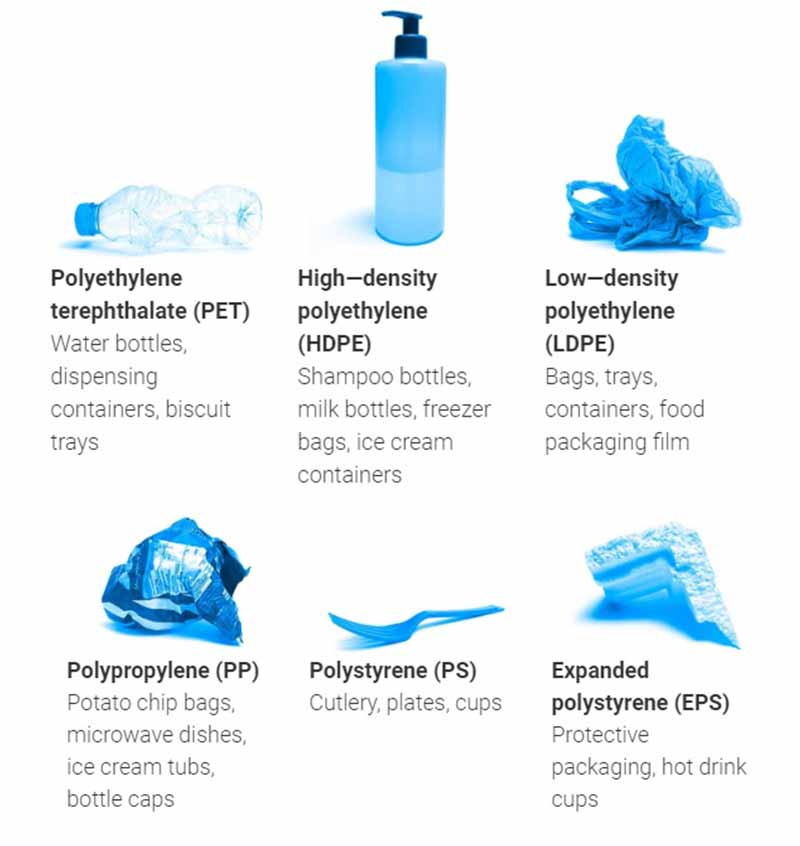- India
- Jan 15
NGT directs govt to finalise EPR regime for plastic waste within 3 months
• The National Green Tribunal (NGT) has directed the ministry of environment to finalise the Extended Producer Responsibility (EPR) regime for plastic waste within three months saying that steps taken by it were too slow.
• A bench headed by NGT chairperson Justice Adarsh Kumar Goel said unscientific management of plastic waste is a serious hazard for the environment and public health. The tribunal was hearing a plea filed by the Central Pollution Control Board (CPCB) alleging that states were not paying heed to the seriousness and ill effects caused by plastic.
Plastic menace
• Around the world, one million plastic drinking bottles are purchased every minute, while up to 5 trillion single-use plastic bags are used worldwide every year.
• Researchers estimate that more than 8.3 billion tonnes of plastic has been produced since the early 1950s. About 60 per cent of that plastic has ended up in either a landfill or the natural environment.
• Only 9 per cent of all plastic waste ever produced has been recycled. About 12 per cent has been incinerated, while the rest — 79 per cent — has accumulated in landfills, dumps or the natural environment.
• Cigarette butts — whose filters contain tiny plastic fibres — were the most common type of plastic waste found in the environment in a recent global survey. Drink bottles, bottle caps, food wrappers, grocery bags, drink lids, straws and stirrers were the next most common items.
• India plans to phase out single use plastic by 2022.
• Environment Minister Prakash Javadekar had earlier said that 30,000 tonnes of plastic waste is generated every day in India. Of this, 10,000 tonnes of plastic waste does not get collected.
Plastic Waste Management Rules, 2016
• Plastic Waste Management Rules, 2016 have been notified on March 18, 2016. These rules apply to the manufacture, import stocking, distribution, sale and use of carry bags, plastic sheets or multilayered packaging, etc.
• For the first time, responsibility of waste generators has been prescribed. Individual and bulk generators like offices, commercial establishments, industries are to segregate the plastic waste at source, handover segregated waste, pay user fee as per bye-laws of the local bodies.
• Extended Producers Responsibility (Under Plastic Waste Management Rules 2016) puts the onus on the manufacturers for the treatment, recycling, reuse or disposal of products after a consumer has used and disposed them.
• The CPCB has sought directions to states and Union Territories to prepare a plan of action for implementation of Plastic Waste Management Rules, 2016 and its effective execution of such plan of action within the stipulated time frame as envisaged in the law.
What are the main points highlighted by NGT?
• NGT noted that there is no justification for long delay in finalisation of EPR models even after more than four years of the publication of the Rules. The same may now be finalised at the earliest, preferably within three months.
• The NGT said that state level authorities need to take necessary effective steps for enforcement, including coercive measures.
• Environmental compensation and penal action regime proposed by the Central Pollution Control Board (CPCB) may be duly implemented by state pollution control boards (PCBs), State Level Monitoring Committees and all other concerned authorities.
• CPCB may continue to coordinate with the State Level Monitoring Committees, the State PCBs/Pollution Control Committees (PCCs) or any other authorities with reference to the steps taken by the State Level Monitoring Committees in coordinating with the concerned local bodies, gram panchayats, waste generators, producers, importers, brand owners, recyclers, manufactures, retailers and street vendors in accordance with the rules.
• The NGT has also clarified that plastic pens are covered under Plastic Waste Management Rules. “Even though pen is not specifically mentioned under the Rules, the same is certainly covered by definition of ‘plastic’ under Rule 3 (o) of the Plastic Waste Management Rule, 2016. Thus, the pen is also covered by the statutory framework,” the bench said.
How plastic is collected in other countries?
• Countries like Belgium, Czech Republic, Ireland, Italy, France, Netherlands, Norway, Portugal and Spain have schemes where an obligated industry creates one common non-profit entity that collects the necessary funding, cooperates with local authorities and ensures recycling in the most cost-efficient and environmental-friendly way. This reduces its public spending spent on waste management by almost 15 per cent.
• Countries like Austria, Germany, Sweden have adopted a dual model where industry has financial responsibility over collection, sorting and recycling. There is a separate collection system designated to local authorities but their influence is minimal.
• The United Kingdom has a model where a customer pays the price of the product and a fraction of it is reserved with the shopkeeper until the container of the item is returned.
National Green Tribunal
• The National Green Tribunal (NGT) was established on October 18, 2010 under the National Green Tribunal Act, 2010 for effective and expeditious disposal of cases relating to environmental protection and conservation of forests and other natural resources.
• It is a specialised body equipped with the necessary expertise to handle environmental disputes involving multi-disciplinary issues.
• The Tribunal has five places of sitting — the principal bench at New Delhi and zonal benches at Pune, Kolkata, Bhopal and Chennai.
• Its dedicated jurisdiction in environmental matters shall provide speedy environmental justice and help reduce the burden of litigation in the higher courts.
• It is mandated to make and endeavour for disposal of applications or appeals finally within six months of filing of the same.
Manorama Yearbook app is now available on Google Play Store and iOS App Store


